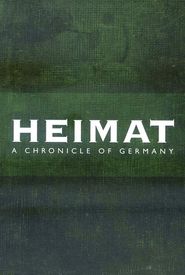Edgar Reitz, a multifaceted individual, embarked on a journey that would shape the course of his life and career. His academic pursuits took him to Munich, where he studied theatre science, German philology, art history, and publicism. This well-rounded education laid the foundation for his future endeavors.
In the early 1950s, Reitz's creative side began to flourish as he published his poems and short stories. He also co-edited the literature magazine "Spuren", which served as a platform for like-minded individuals to share their work.
Reitz's passion for the performing arts led him to take acting lessons in 1952. He co-founded a student theatre, which would later become the university's studio stage in 1954. This experience not only honed his acting skills but also instilled in him a sense of collaboration and teamwork.
The mid-1950s saw Reitz venturing into the world of filmmaking. He assisted with camera, editing, and production on several films, and in 1957, he joined the educational film production company 'Gesellschaft fur bildende Filme (GBF)' as a script adviser. This role allowed him to develop his skills as a writer and storyteller.
Reitz's creative output continued to grow, and in 1959, he began directing his own short documentaries, industrial films, and short films. This marked the beginning of his journey as a director, and his unique style and vision began to take shape.
In the same year, Reitz co-founded 'Doc 59' aka 'Münchener Gruppe' with Edgar Reitz, Herbert Vesely, Haro Senft, Raimund Ruehl, and Franz-Josef Spieker. This collective prepared the 'Oberhausener Manifest' of 1962, a document that would go on to shape the term 'New German Cinema'.
From 1962 to 1965, Reitz directed a department at the 'Insel-Film' production company. During this time, he continued to develop his skills as a director and honed his craft.
In 1963, Reitz and Alexander Kluge founded the film department at 'Hochschule fur Gestaltung' (College for Design) in Ulm. This marked a significant milestone in Reitz's career, as it allowed him to share his knowledge and expertise with the next generation of filmmakers.
Reitz's first feature film, 'Table for Love' (1967),is a testament to his growth as a director and his ability to tell compelling stories. This film, along with many others, is a product of the 'New German Cinema' movement, which was shaped by the Oberhausener Manifest and the creative output of individuals like Reitz.
















